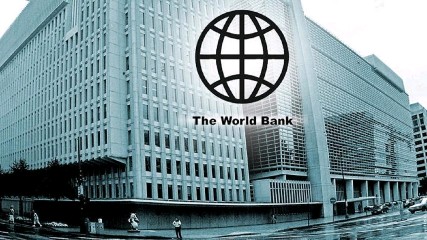Our Terms & Conditions | Our Privacy Policy
Compliance lapses threaten Nigeria’s $10m World Bank credit
From Adanna Nnamani, Abuja
The federal government risks forfeiting $10 million from a World Bank credit due to a series of delays and compliance issues within the Fiscal Governance and Institutions Project (FGIP).
The initiative, totaling $103 million, is aimed at enhancing public financial management, and is financed through a credit facility from the International Development Association, a prominent lending arm of the World Bank.
An official report from the World Bank, addressed to the Federal Ministry of Finance, outlines the reasons for this forfeiture.
According to the document, the funds are scheduled to close by June 30, 2025. The Ministry has requested the cancellation of $0.9 million in unused funds allocated for Technical Assistance (TA) and an additional $9.5 million linked to performance-based conditions that remain unmet as the project draws to a close.
Among the items being canceled is a $4 million audit of key revenue-generating agencies, specifically the Federal Inland Revenue Service (FIRS) and the Nigeria Customs Service (NCS). The World Bank identified this audit as substandard, prompting the cancellation.
“These intermediate results (IRs) to be implemented by the OAuGF were assessed as not achieved by the independent verification agent (IVA) because the reports submitted for verification did not meet the requisite international auditing standards,” the report stated.
In terms of specific projects, the deployment of a National Budget Portal, which had a budget of $1 million, has not been backed by sufficient evidence from the Bureau of Finance (BOF) demonstrating its achievement.
Similarly, the implementation of the Revenue Assurance and Billing System (RABS) faced setbacks with its $4.5 million allocation. Evidence was only provided for 27 out of the 55 Federal Government Owned Enterprises (FGOEs) that were supposed to establish Treasury Single Account (TSA) sub-accounts for foreign earned revenues.
Additionally, automatic transfers of these revenues to the Consolidated Revenue Fund (CRF) were not executed as stipulated.
These delays stem from various issues, including contract management challenges and pending documentation requirements from the Central Bank of Nigeria (CBN).
The Ministry is in the midst of expanding the RABS implementation consortium by bringing in another vendor, and the CBN has requested an indemnity letter to protect it from potential liabilities related to these automatic fund transfers.
Consequently, the completion of RABS implementation is now anticipated for August 2025, occurring well after the FGIP’s closure.
Despite the missed performance targets, the FGIP has recorded notable progress in certain areas. The World Bank’s report indicated that Nigeria’s non-oil revenue exceeded expectations, reaching 153 percent of the budgeted target in 2024, a significant increase from the 64.9 percent baseline recorded in 2018.
This improvement is largely attributed to the country’s exchange rate unification policy, enhanced tax administration via the TaxProMax system, and reforms that automated revenue collection processes for various ministries and agencies.
However, the report pointed out that capital expenditure execution remains below the projected target, at just 50 percent, which is short of the desired 65 percent.
Despite these challenges, Nigeria has made strides in publishing reconciled economic and fiscal datasets, achieving 10 publications compared to the target of six. Nonetheless, project monitoring and evaluation were rated as “moderately unsatisfactory” by the World Bank.
Further areas of progress include the launch of an electronic register of beneficial owners by the Corporate Affairs Commission (CAC), which now encompasses about 40 percent of registered businesses, along with the release of a national asset registry and financial reports by the Ministry of Finance Incorporated (MOFI).
As it stands, the final estimate for the disbursement of funds related to the FGIP is projected at $96.04 million, representing a substantial 93 percent of the project’s original total of $103 million before cancellations.
[ad_1]
Images are for reference only.Images and contents gathered automatic from google or 3rd party sources.All rights on the images and contents are with their legal original owners.
[ad_2]



Comments are closed.